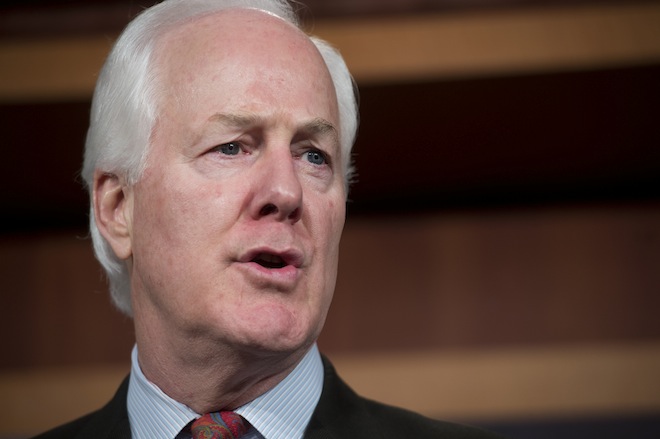The RNC’s post-mortem examination of the GOP’s 2012 defeat links two key and interacting ideas: that Republican elected officials in Washington — to a much greater extent than Republican governors — have devastated the party’s popularity; and that through a combination of better outreach, softer rhetoric, and support for comprehensive immigration reform, these Republicans need to improve their standing with ethnic minorities.
That’s a tough internal diagnosis for national GOP leaders, and a bitter, controversial prescription for a cure. It comes a week after House Republicans introduced a familiar budget, indicating the party’s broader economic policies haven’t changed, and amid a bipartisan push for immigration reform that’s tearing the GOP in half.
Despite the daunting, frontal challenge to the GOP’s Capitol leaders that Monday’s report represents, key Republicans applauded the RNC, and only revealed the difficulty they’ll have accomplishing the report’s goals when asked about coming tests.
“It looks like a legitimate attempt to try to do a post-mortem on the election and I think it seems to be candid and forthright and I hope we learn from it,” Sen. John Cornyn (R-TX), who ran the Senate GOP’s campaign arm in 2012, told TPM in the Capitol Monday evening. “But now the hard work is before us because it’s not just identifying the problems but actually now doing something about it.”
Cornyn even expressed something just shy of remorse for the plight congressional Republicans face.
“We’ve got 30 Republican governors as I recall,” Cornyn said. “And so there is a big disconnect there which I don’t think — certainly I haven’t quite figured out, but I think bears some more reflection.”
But when I asked him about President Obama’s decision to nominate the Hispanic Justice Department lawyer Tom Perez to be his next secretary of labor, Cornyn grew diffident.
“I have some concerns,” he said. “I’m still looking at it.”
Sen. Jeff Sessions (R-AL) said he agreed with the RNC’s broad assessment — though he deflected some of the blame for congressional Republicans’ terrible numbers to President Obama.
“The stars of the Republican Party have been good governors who manage effectively, and somehow we need to demonstrate — somehow we need to capture that here in Washington,” he told me in the Capitol Monday evening. “Because I believe the most important thing in Washington is a strong management emphasis. But the problem is, it’s very, very hard for the legislative branch to do that. It’s an executive branch function. So, President Obama’s been very successful at just not managing and not being held accountable for it. So I’m not sure how we should do that effectively. It’s easier to say.”
But in practice, he isn’t followingf the RNC’s instructions. Sessions is one of Perez’s toughest critics, for both political and ideological reasons. And he reiterated his discomfort with comprehensive immigration reform — the RNC’s most salient policy recommendation.
“We need major immigration reform, and if you want to call it comprehensive I wouldn’t disagree,” he said. “But I’d say two things about it. I think a step-by-step approach is more effective to achieve a comprehensive result than one single bill jammed through that nobody knows what’s in. And if that’s what they’re saying, I totally disagree. … The concept that we need to take a look throughout the entire immigration system and make it work better to deal compassionately with people who’ve been here a long time, I’m for that. But I don’t think that means that you give someone who came here illegally every benefit that you bestow on somebody who comes legally. I totally don’t agree with that.”
Other senators and House members issued official statements Monday praising the RNC report — officially titled the Growth and Opportunity Project. But others, when asked, either claimed not to have read it or gave it short shrift.
“I haven’t seen it,” said Sen. Richard Shely (R-AL). “I have to look at it. But this goes on — I call them re-evaluations or postmortems, or whatever you call them. We do that all the time. The Democrats do it. We’re looking toward the next election, which is next year.”






